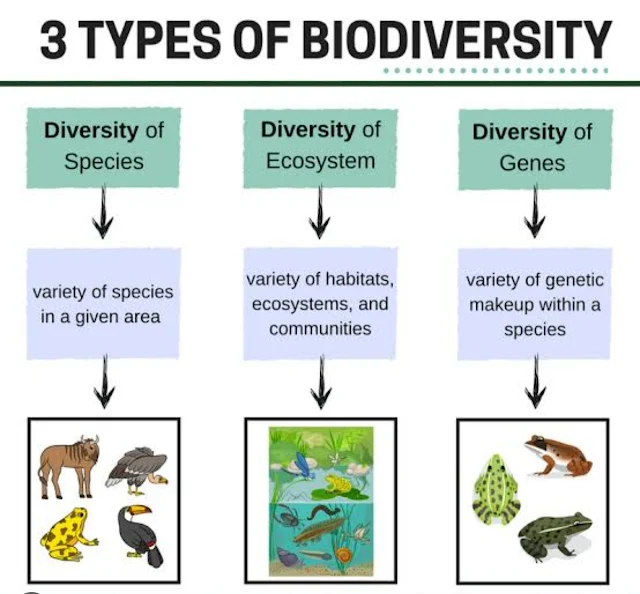Biodiversity and its significance 🌎
- Get link
- X
- Other Apps
🌿 Biodiversity and Its Significance: A Key to Life on Earth 🌍
Biodiversity, short for "biological diversity," refers to the vast variety of life forms on Earth — from the tiniest microorganisms to the largest mammals, from forests and oceans to grasslands and deserts. It includes not only the diversity of species but also the genetic differences within species and the variety of ecosystems they form.
🌱 What is Biodiversity?
Biodiversity encompasses:
Species diversity – The variety of different species within a habitat or a region.
Genetic diversity – The genetic variation within a species.
Ecosystem diversity – The different types of ecosystems such as forests, coral reefs, wetlands, and deserts.
Together, these create a complex web of life that supports the health of the planet.
🌼 Why is Biodiversity Important?
1. Ecological Balance:
Every species, no matter how small, plays a role in maintaining balance in an ecosystem. Predators control prey populations, plants purify the air, and insects pollinate crops. Losing one link can affect the entire chain.
2. Food and Agriculture:
Biodiversity ensures food security by providing a wide variety of crops and livestock. Genetic diversity helps in developing disease-resistant and climate-resilient crops.
3. Medicine and Health:
Many life-saving medicines are derived from natural sources. Plants, fungi, and even marine organisms contribute to pharmaceutical breakthroughs.
4. Climate Regulation:
Forests, oceans, and wetlands absorb carbon dioxide and regulate the Earth’s temperature. A loss in biodiversity reduces nature’s ability to deal with climate change.
5. Economic Value:
Biodiversity supports industries such as agriculture, pharmaceuticals, fisheries, and tourism. Nature-based tourism provides income for millions of people worldwide.
6. Cultural and Spiritual Value:
Many communities have deep spiritual, cultural, and religious ties with nature. Biodiversity inspires art, folklore, and traditions.
🚨 Threats to Biodiversity
Deforestation and habitat loss
Pollution (air, water, soil)
Climate change
Overexploitation of resources
Invasive species
Human activities are the primary cause of biodiversity loss, and reversing this trend requires immediate action.
🌍 What Can We Do?
Protect natural habitats and endangered species.
Practice sustainable agriculture and fishing.
Reduce waste and pollution.
Support conservation organizations.
Educate others about the importance of biodiversity.
🌸 Conclusion
Biodiversity is the foundation of life on Earth. It supports ecosystems, sustains livelihoods, and enriches cultures. Preserving biodiversity is not just about saving animals and plants — it’s about safeguarding our future. The more we protect nature, the better our chances of survival on a healthy planet.
- Get link
- X
- Other Apps





Comments
Post a Comment